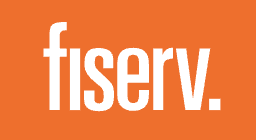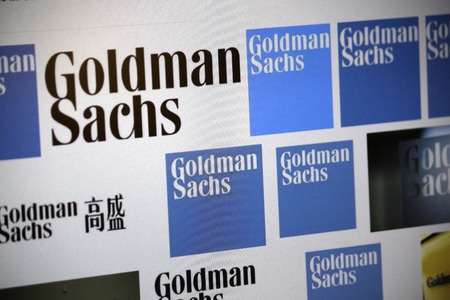Articles by Adam Zaki
Adam is a Reporter from Long Island and graduate of Brooklyn College.
Facebook is Buying Invoices, But is it Factoring?
October 8, 2021 After Facebook announced Facebook Invoice Fastrack, a program that would allow the company to enter the invoice factoring business effective October 1st, few knew what to expect.
After Facebook announced Facebook Invoice Fastrack, a program that would allow the company to enter the invoice factoring business effective October 1st, few knew what to expect.
“My gut tells me here that Facebook is not all of the sudden getting into the lending business,” said James Cretella, Partner at Ottoburg LLC and guest speaker at the IFA conference last Spring. “Big tech is seeing the information symmetries, especially in small business lending. It’s very fragmented, and [tech] is trying to exploit that to bring down the cost, and to consolidate that industry,” he said.
Cretella expressed a positive outlook on Facebook’s entrance into the factoring sphere. “I think it’ll be a very good thing for small businesses when big tech gets involved.”
Others believe that big tech is doing pseudo-funding in an effort to break into the space and improve their public image. “There’s always a question when big tech or similar big anything’s get into factoring,” said Robert Zadek, Of Counsel for Buchalter and CEO of Lender’s Funding. “They might call that factoring, but it’s not. It’s a fake factoring product. Fake in the sense that it’s only part of what factoring is,” Zadek said.
Since then Facebook has revealed its program partners, Supplier Success and Crowdz.
The major component here is whether or not Facebook is doing the standard operating procedures of a factoring company, or just purchasing invoices owed. “They’re probably not filing a financing statement a UCC-1, because that takes a long time, and [tech] likes fast,” Zadek said. “Filing is slow and almost manual.”
Without going through the processes of a factoring company, Facebook may just be banking on the good faith of borrowers to pay and eating the costs of those who don’t. “[Facebook] is left with an earned 1% fee with no work, which would be profitable if they get back. If they don’t it’s like a write off,” said Zadek.
According to a Facebook announcement, the company has already practiced factoring with a handful of small businesses, claiming that the program has successfully helped these select businesses grow, even giving some businesses opportunities to just keep their doors open.
 We wanted to make a commitment to building tools that made information and inclusive funding partners easy to find and understand,” said Ronnie Cameron, Product Manager, Social Impact at Facebook. “We’ve been able to engage with some amazing [organizations]. The pandemic brought to light the gaps in access to funding that have always existed for underrepresented business owners.”
We wanted to make a commitment to building tools that made information and inclusive funding partners easy to find and understand,” said Ronnie Cameron, Product Manager, Social Impact at Facebook. “We’ve been able to engage with some amazing [organizations]. The pandemic brought to light the gaps in access to funding that have always existed for underrepresented business owners.”
Facebook is positioning itself in a way that appears that the company is providing an exclusive service to a community who had already been underserved prior to the pandemic, and now, according to them, needs help more than ever before. As the company has had a tough time maintaining a positive image to the public, this could also just be a slightly profitable way to fix their public perception.
Zadek compared tech’s entrance into funding to when MCAs began competing with Factoring Companies. “Instead of whining about MCAs, why don’t you give the client more money?,” he asked his predominately factoring audience when they would complain to him about MCAs. “The MCAs don’t have a death wish,” he told his audience. “They are giving money because they believe they are going to be paid back.”
Sticking to the notion that Facebook’s take on factoring is different from what his industry does, Zadek summed up his take on Facebook’s announcement.“They’re not doing factoring, they’re doing something that has little pieces of factoring in it.”
Miami is Now Making Money Off of Its Own Crypto Coin
October 7, 2021 Francis Suarez, the crypto-crazed mayor of Miami that has attempted to make his city the next center of innovation in the industry, has recently generated more than $7.1M in funding for Miami’s government via MiamiCoin. Arriving in the form of a crypto “donation” to the city, it was all made possible by CityCoins, a nonprofit that allows users to mine coins that the company claims can help the wallets of both coin holders and the cities with whom they look to invest in.
Francis Suarez, the crypto-crazed mayor of Miami that has attempted to make his city the next center of innovation in the industry, has recently generated more than $7.1M in funding for Miami’s government via MiamiCoin. Arriving in the form of a crypto “donation” to the city, it was all made possible by CityCoins, a nonprofit that allows users to mine coins that the company claims can help the wallets of both coin holders and the cities with whom they look to invest in.
According to CityCoins’ website, each time a city launches a new coin, users can mine coins themselves. They are an open-source network that allows developers to create smart contracts on top of the same layer used by Bitcoin, a feature normally reserved for blockchains like Ethereum or Cardano.
“Each time a new CityCoin such as MiamiCoin launches, 20+ unique wallets are needed to activate the token’s mining process,” the site reads. “Once this happens, a 150 block (~24 hour) countdown begins, signaling the start of the CityCoins’ mining process at the end of the countdown period. From there, anyone is eligible to participate in the CityCoins mining process within a given Stacks block and be rewarded for their contributions.”
The system creates a bidding process, sending Stack tokens to the chosen city’s smart contract for a specific block. The more Stack tokens that are sent to the contract, the more likely a user is to win rewards for that block. This creates a system where anyone can compete for the coins, as the process of mining a CityCoins product is completely free of any type of hardware.
Thirty percent of miners’ forwarded Stacks is directed into a crypto wallet for the respective city, and the remaining 70% can be used to earn Stacks or Bitcoin. Winners of the coins through CityCoins’ mining process, are chosen by a Verifiable Random Function (VRF) that takes into account the number of Stacks sent to specific contracts.
Anyone would be forgiven if the process and potential utility sounds convoluted. It becomes even more so after examining what exactly a “Stack token” is.
Stacks, a type of blockchain token originated into existence in 2019, were previously registered as securities with the SEC, a rarity in the crypto space. The company that issued them, however, has since changed course and has chosen to no longer register them. This was based upon the company’s own legal opinion, not the SEC’s.
Bottom line: However this CityCoins systems works and whatever the reasons why anyone would participate in it, it has somehow managed to yield more than $7 million for the city of Miami.
While everyone today likes to focus on the negative and want to create conflict and division…We made 1 million dollars on Miami Coin…TODAY…think about that! https://t.co/Ycbwre6Wss
— Mayor Francis Suarez (@FrancisSuarez) October 1, 2021
When speaking about the city’s involvement in becoming a fintech hub with The Floridian, Suarez credited timing to why his city is becoming the go-to spot for fintech businesses to flock. “We had an opportunity,” Suarez said. “You had cities across America, urban cities, pushing out innovators through taxation policies, sometimes elected officials saying “F” Elon Musk, or Amazon picks New York and they push them out.”
Suarez, a member of the Florida BlockChain Task Force, also credited his December 2020 viral tweet as a reason for tech’s attraction to Miami. Suarez answered a tweet with “how can I help?” after a user took to Twitter asking people if they believed Silicon Valley should move to Miami. “It was so counter-narrative to the way elected officials were dealing with technology and technologists,” he said, in reference to the Tweet.
According to Suarez, the city’s focus on crypto and fintech has made Miami a tech-trendsetter for other cities. Thanks to tech’s arrival, Miami is the first city to pursue paying workers in Bitcoin, the first to allow citizens to pay taxes in Bitcoin, and hitting huge numbers in the city’s job market. According to Suarez, the city added 8,000 jobs with an average annual salary of $120,000 in the past nine months.
“For the first time in [Miami’s] history, we are now creating high paying jobs,” Suarez said.
LOOP Brings Real Tech to Auto Insurance
October 6, 2021 LOOP, a insurtech company that is launching a new concept of AI-driven auto insurance polices, was able to land $21M in Series A funding last week. The group of investors varied from venture capital groups to media companies to celebrities like hip-hop star Nas. The company claims to do auto insurance differently by changing the way they design premiums and qualify discounts.
LOOP, a insurtech company that is launching a new concept of AI-driven auto insurance polices, was able to land $21M in Series A funding last week. The group of investors varied from venture capital groups to media companies to celebrities like hip-hop star Nas. The company claims to do auto insurance differently by changing the way they design premiums and qualify discounts.
“We get rid of all the stuff that doesn’t matter in pricing [customers],” said John Henry, Co-CEO and Co-founder of LOOP, when explaining how the ways traditional insurance companies price their customer’s rates. This is where LOOP separates themselves from the pack. Things like credit scores, education, and income are not considered when pricing out their customer’s rates according to Henry, rather it’s how and where they are driving that determines the cost of insurance.
As an [Managing General Agent] MGA, LOOP underwrites its own risk and chooses the services they partner with to operate their claims. “This is not some digital brokerage or a quoting engine,” said Henry. “When you are insured by LOOP, it’s our actual product you’re insured by. We don’t sell any other products, we don’t sell leads, we are in the business of insuring people.”
LOOP will provide information to its customers that enables them to improve their driving and decrease their future rates. They will send customers tips on where and when to drive, and how to drive if they are driving erratically via a phone-based app. Their initial rate is based on population-level statistics from the respective area, and their personalized rate is a standard 6-month premium, meaning that the monthly rate won’t change month-to-month based upon how customers drive at certain times.
“We have millennials encumbered with student loan debt, we have immigrant populations with consumer loans, baby boomers selling their homes and losing their home and auto bundles, and the realities of the post-pandemic era means that we need more flexible and contemporary insurance solutions, and we are proud to be emerging as that,” Henry said.
 “We are the third step of insurtech,” he said, when asked how LOOP compares to others in the AI-based insurance sphere. “We’ve fundamentally built a novel insurance product from the ground up. Rather than sprinkle a digital layer on top of a legacy product, we completely rearchitected it.”
“We are the third step of insurtech,” he said, when asked how LOOP compares to others in the AI-based insurance sphere. “We’ve fundamentally built a novel insurance product from the ground up. Rather than sprinkle a digital layer on top of a legacy product, we completely rearchitected it.”
Henry boasted about how his company is the only one writing policies without traditional demographics in mind. “Today, I’m really proud to say that LOOP is the only insurance product that is a standard auto product that doesn’t have any of those demographic factors, it’s completely technology driven,” Henry said.
According to Henry, LOOP’s status as a public-benefit corporation, or B-Corp, will give his company the moral obligation it needs to fulfill its mission of being a fair, non-biased, and non-discriminatory auto insurance provider. The B-Corp status creates a “double bottom line” as Henry put it, creating a legal obligation for the company to hold the values in its mission statement for its customers, as well as the traditional corporate obligation to what’s best for its shareholders.
“From a business perspective, it’s kind of a risky thing,” Henry stressed when talking about the obligation to their customers as part of the public-benefit agreement. “The public can sue us if they ever feel like we are straying away from our mission.”
Customers are saving an average of 35% on their auto insurance premiums when quoted by LOOP, according to Henry. The company name directly correlates with the envisioned series of events that a LOOP customer will experience while holding a policy. A LOOP customer signs up, gets a good rate, utilizes the information given by LOOP, their driving is tracked and the data is analyzed, and the rate drops upon renewal after the policy expires. By repeating this, the customer “loops” around a cycle of better information leading to better rates.
“This is a mass market product. There is mass consumer demand. Our waitlist has grown to over 30,000 people across all fifty states, with different age groups and backgrounds,” Henry said. “I think people are excited to have an insurance company they can love again.”
Canada is Looking Forward to Open Banking
October 4, 2021 “It’s a fairly big deal,” said Tal Schwartz, Senior Advisor to the Canadian Lenders Association, when discussing the Canadian government’s renewed interest in alternative lenders after the recent Canadian election. As potential government officials from both parties discussed ideas about open banking in their election campaigns, such a conversation had been quelled by the “Big Five” Canadian banks— until now.
“It’s a fairly big deal,” said Tal Schwartz, Senior Advisor to the Canadian Lenders Association, when discussing the Canadian government’s renewed interest in alternative lenders after the recent Canadian election. As potential government officials from both parties discussed ideas about open banking in their election campaigns, such a conversation had been quelled by the “Big Five” Canadian banks— until now.
“The closer we get to some kind of entrenched regulatory framework, the better positions fintechs will be in to actually compete, get access to financial data, and raise money in an environment where there is regulatory certainty,” said Schwartz.
In August, the Canadian department of Finance welcomed a Final Report from the Advisory Committee on Open Banking that showcased a plan to modernize the Canadian financial regulatory system, with open banking and fintech in mind.
“Consumer-driven finance, or open banking, is already part of Canadians’ lives,” said Chrystia Freeland, Canada’s Deputy Prime Minister and Minister of Finance, in the report.
“Many use digital services every day to manage their money, to budget for expenses, and to make investments. Working towards a regulated, made-in-Canada system will make sure that we continue to enjoy a strong, stable, and innovative financial sector that is globally competitive, promotes consumer choice, prioritizes data privacy, and contributes to economic growth,” Freeland continued.
Schwartz said that the traditional oligopolistic structure of Canadian banking can offer advantages in times of financial crisis, but not when the government is shelling out money to help businesses during pandemic-related shutdowns.
 “The reality was, if you’re a small business, you don’t have a credit relationship with a big bank, the only credit relationship you have is with an alternate lender,” said Schwartz. “By distributing money through big banks, in one sense, you’re not servicing customers the way they want to be served, and you’re cutting oxygen to a flourishing part of the innovation economy in Canada.”
“The reality was, if you’re a small business, you don’t have a credit relationship with a big bank, the only credit relationship you have is with an alternate lender,” said Schwartz. “By distributing money through big banks, in one sense, you’re not servicing customers the way they want to be served, and you’re cutting oxygen to a flourishing part of the innovation economy in Canada.”
Unlike in the United States, the Canadian government gave exclusive access of allocation to pandemic-induced federal assistance loans to the Big Five banks, leaving small business lenders relatively out to dry during that time. When asked about what issues he would like to see the new administration tackle first when it comes to alternative lenders, Schwartz mentioned the allocation of this type of money moving forward.
Other institutions outside of big banking in Canada are making strides in their effort to compete. Fintech giant Stripe announced hiring sprees for their new Toronto office last Thursday. Then there’s Nuula, a startup that aims to build a user-centric financial super app, announcing $120M in funding in early September.
To reach its full potential, Canadian fintech companies need the access to more data. The report recognizes the acknowledgement of the necessity this data is to fintech companies. “The scope of Canada’s open banking system in its initial phase should include data that is currently available to consumers and small business through their online banking applications,” it says. “Financial institutions should be allowed to exclude derived data – described as data enhanced by financial institutions to provide additional value to their consumers, such as internal credit risk assessments” the report reads.
“Historically, there hasn’t been very tech friendly or [Big Bank] challenger friendly regulations,” Schwartz said. “This is really the first time we’ve seen the political parties even mention issues of open banking and saying this will be a priority for our next government.”
“This has given the industry a lot of hope,” said Schwartz.
New Jersey Continues to Heavily Court Fintech Companies
September 30, 2021 New Jersey’s recent announcement of tax breaks to the fintech company Fiserv in exchange for the company’s commitment to a major hub in the state showcases one of the top private corporate tax breaks in Governor Phil Murphy’s tenure. The move is one of many by the state in recent years as they continue their push to establish a permanent home for fintech.
New Jersey’s recent announcement of tax breaks to the fintech company Fiserv in exchange for the company’s commitment to a major hub in the state showcases one of the top private corporate tax breaks in Governor Phil Murphy’s tenure. The move is one of many by the state in recent years as they continue their push to establish a permanent home for fintech.
Fiserv is seeking the benefits of the state’s Emerge program, an economic development plan that provides businesses with tax incentives based on the number of jobs created. Fiserv’s relocation to a brand-new 428,000 square foot campus in Berkeley Heights will probably come alongside approximately 2,000 new hires, according to the company.
“This announcement from Fiserv is exactly what we envisioned when we created the Emerge program – an innovative company that provides high-paying jobs choosing to expand in New Jersey,” said Murphy. “We’re excited that Fiserv sees what we see in New Jersey, and we look forward to the company’s continued success.”
 Fiserv’s brass noted that the move to the new offices is a great opportunity to expand their presence while providing opportunities in an area where current employees and customers are familiar with.
Fiserv’s brass noted that the move to the new offices is a great opportunity to expand their presence while providing opportunities in an area where current employees and customers are familiar with.
“[This company] has been in New Jersey for decades” said Frank Bisignano, President and Chief Executive Officer of Fiserv. “Our new location in Berkeley Heights will be a dynamic hub of collaboration and innovation, bringing our people together in an inspiring workplace environment to create opportunity for unmatched energy and career growth experiences as we move payments and financial services forward on behalf of our clients.”
The neighborhood is also embracing the company’s big arrival, as the move drew support from local politicians. Mayor of Berkeley Heights Angie Devanney praised the move, referring to Fiserv as a “great partner” of the city.
“The company’s technology focus and commitment to diversity are an ideal complement to our community, and we look forward to a long-term partnership that will continue to grow,” said Devanney.
According to Fiserv, they have intentions to partner with universities in the area to create programs for students and graduates. Programs with universities would allow Fiserv to have a direct pipeline from top colleges in New Jersey to their employment applicant pools. Rutgers University was the only school mentioned by name in the company’s press release.
Already employing over a thousand New Jersey residents, the move will have more of an impact on how the company is perceived in the area. Their new offices will have a “Leadership in Energy” and “Environmental Design” (LEED) certificate, alongside a pledge to provide $50 million to help minority-owned small businesses return to pre-pandemic normalcy.
Fiserv’s top executive expressed the company’s desire to have a positive impact on its new community as its tax-motivated investment comes to fruition. “As part of our investment in this new Fiserv location, we look forward to being a force for good by engaging in and creating positive and meaningful impact in the Berkeley Heights community,” Bisignano said.
Fintech Company Launching Money Managing App with Big Incentives
September 29, 2021 The fintech company Enzo is set to launch a money managing app within the end of the year and is handing out tremendous incentives to draw customers. The company is offering 10% cash back on Uber rides, 5% cashback on Doordash, 1.5% cashback on rent payments, and 1.25% cashback on everything else. Checking accounts offered by Enzo will also get a 0.50% interest rate.
The fintech company Enzo is set to launch a money managing app within the end of the year and is handing out tremendous incentives to draw customers. The company is offering 10% cash back on Uber rides, 5% cashback on Doordash, 1.5% cashback on rent payments, and 1.25% cashback on everything else. Checking accounts offered by Enzo will also get a 0.50% interest rate.
Enzo’s cashback program has its limits. Annual cashback bonuses are capped at $500, and monthly cashback bonuses are capped at $65. According to their site, if a user spends $2,000 on rent, $150 on Uber, and $400 on DoorDash in one month, they would be credited $65 at the end of the month into their Enzo checking account. Once the monthly and/or annual cap has been triggered, an account will continue to earn 1.25% cashback on all other purchases.
“We started Enzo because we kept seeing our friends make the same money mistakes over and over,” said Jeremy Shoykhet, CEO of Enzo. “We saw people who excelled at every aspect of their lives struggling to get their finances in order [and] we felt there had to be a better way.”
Enzo will also be offering their first batch of account holders equity in the company.
“We feel very strongly about helping our members build and steward wealth,” said Shoykhet when asked about the company’s equity offer. “In connection with that mission, we are launching a first of its kind equity program where we will be giving equity to early evangelists of the Enzo brand, more information about the specific mechanics of the program will be available toward year-end,” he said. “The program does not require opening an Enzo account and is subject to terms and conditions.”
The company also has a stock trading interface within its mobile app, so customers can manage liquid cash and investments in the same place. According to Enzo’s website, customers can automatically track gains, dollar cost average over time, customize portfolios, and manage checking accounts all in the Enzo app.
“At our core, we want to help the millennial generation build the financial foundations that help them live the lives they desire,” Shoykhet said.
The company’s banking services will be FDIC insured through Blue Ridge Bank, who will hold all the money and process the transactions. They are also partnered with Unit for the backend technology in the software. Customers will have access to funds in their checking accounts with an Enzo debit card, which will be uniquely designed by artists for the first ten thousand account holders.
Enzo’s webpage claims that their inaugural staff is a “diverse team of veteran Wall Street investors, engineers, operations, and product folks.” They claim to have gathered top level employees from some of the top financial institutions around the globe.
Enzo’s accessibility and seemingly user-friendly software combined with their incentives for account holders portrays a very interesting notion in non-bank finance. Customers are looking for an easy to use, easy to understand, and easy to access multi-platform money management system with perks and incentives.
Enzo has a waiting list approaching 14,000 potential account holders as of Wednesday. As of now, according to Shoykhet, the program will launch as invite-only. They will add new customers into the program on a rolling basis.
This may not be the end of new financial services for Enzo, according to Shoykhet. He hinted to the company’s future plans in his explanation of the product. “We are also planning to launch innovative financial planning features through a mix of human advice [and] technology-powered advice.”
Small Business Funders Are Hiring, But Does Anyone Want the Jobs?
September 28, 2021 As the small business finance market gets back to normalcy, the industry’s latest challenge is filling all of the open positions. Jobs that would once attract hundreds of resumés are now ending up with very few, if any at all.
As the small business finance market gets back to normalcy, the industry’s latest challenge is filling all of the open positions. Jobs that would once attract hundreds of resumés are now ending up with very few, if any at all.
Even after pursuing LinkedIn, the applicant pool just looks light.
In our research, deBanked found five fintech companies on LinkedIn that have ads that are at-least a week old with three or less applicants.
One company based on Long Island, promoted a $5,000 signing bonus for an underwriting position and only had five applicants. Meanwhile, a self-acclaimed “prestigious” Manhattan lender even has a month-old ad posted that offers a $10,000 per month salary. That job has one active applicant, according to LinkedIn.
Chad Carter, Director of Franchise Success at Lendio, says the hiring process has been difficult, but isn’t impossible to navigate. “Being based in Utah has been somewhat challenging as unemployment is extremely low and the Silicon Slopes area has a lot of tech headhunting,” said Carter. “We’ve hired and are hiring hundreds more people this year so we feel it too. Luckily we have extremely good reviews on Glassdoor, which helps keep applications coming and our culture keeps them here.”
 Some companies have gotten creative when it comes to building their staff to counter the lack of applicants in the workforce. “We have seen some open roles have more interest than others,” said James Webster, CEO of ROK Financial. He says his company has been able to expand hiring by offering remote sales positions that opens the applicant pool nationwide.
Some companies have gotten creative when it comes to building their staff to counter the lack of applicants in the workforce. “We have seen some open roles have more interest than others,” said James Webster, CEO of ROK Financial. He says his company has been able to expand hiring by offering remote sales positions that opens the applicant pool nationwide.
“We have been hiring and building an outside sales division known internally as the Remote Sales Division,” Webster said.
He claims the number of applicants for remote sales positions have been high, but that doesn’t mean his company is hiring a ton of staff to add to the program. “We are still extremely selective on who we allow onto the platform as they represent ROK in the market,” said Webster.
“All in all, recruiting is harder now than it has been in previous years,” Webster said. “Especially when the culture in the office is such a priority to maintain.” He noted that the roles that are currently difficult to fill are mostly administrative positions, not sales.
A recruiter for a large finance-centric company that wishes to stay anonymous told deBanked that the finance industry in general is having hiring troubles, not just fintech. “There’s tons of turnover all around,” said the recruiter, who claims that they themselves are actively being poached by other companies due to the lack of people wanting to work.
“I can only assume that fintech is just as crazy,” the recruiter said.
Marcus Has Reached $100 Billion in Deposits
September 24, 2021 Marcus by Goldman Sachs, the prestigious investment firm’s attempt at being a conventional bank, announced that they have over $100 billion in deposits after just five years in operation. The online platform that began as an invite-only savings platform has transformed into a full-blown consumer bank, operating on the futuristic model of operating savings and CD accounts digitally.
Marcus by Goldman Sachs, the prestigious investment firm’s attempt at being a conventional bank, announced that they have over $100 billion in deposits after just five years in operation. The online platform that began as an invite-only savings platform has transformed into a full-blown consumer bank, operating on the futuristic model of operating savings and CD accounts digitally.
“If you told me we would accomplish so much in just five years from launch, I would have said you were crazy,” wrote Harit Talwar in a LinkedIn post on Thursday that announced his retirement from Marcus. “It shows that nothing is impossible when you have the best people.”
In his post, Talwar praised Marcus’ desire to take risks, acting as a separate entity while having to operate within the confines and upkeep of the Goldman Sachs reputation.
 “We had the audacity to think big, and it’s safe to say we proved the skeptics wrong – eight million customers, $100 billion in deposits, nearly $10 billion in card and loan balances, $1.5 billion in run rate revenue, two J.D. Power wins and partnerships with the top brands in the world including Apple, Amazon, Walmart, JetBlue, AARP, General Motors and more,” Talwar wrote.
“We had the audacity to think big, and it’s safe to say we proved the skeptics wrong – eight million customers, $100 billion in deposits, nearly $10 billion in card and loan balances, $1.5 billion in run rate revenue, two J.D. Power wins and partnerships with the top brands in the world including Apple, Amazon, Walmart, JetBlue, AARP, General Motors and more,” Talwar wrote.
Marcus launched in 2016 with some of the best interest rates in the banking industry. It introduced the Goldman Sachs brand to an entire new group of customers by offering up high interest rates on accounts with no fees, which was nearly unheard of at the time. Two years after launch, Marcus had over $35 billion in deposits.
Marcus’ path was almost completely different prior to its launch. The original idea prior to Marcus was a platform called Mosaic, a banking concept meant for borrowers with good credit that were looking to refinance other debt.
In his retirement post, Talwar credited the camaraderie that developed between employees as a major factor resulting in the success of Marcus. “The team has given more than perhaps in prior jobs, but maybe that is the price of building something this extraordinary at an unprecedented pace,” Talwar wrote. “Yet by sharing those experiences in the trenches, we’ve made lasting friendships and redefined what a consumer business looks like.”
The outlook for Marcus is seemingly endless. Online banking is trendier than ever, and the outlook for banking is losing the brick-and-mortar mentality.
Experts also believe that Marcus has helped Goldman Sachs’ progress into new markets. “Marcus has taken advantage of a core strategic advantage—[Goldman Sachs’] lack of a preexisting deposit customer base— to prove that digital deposit gathering at scale is possible for a large institution,” Todd Baker, Managing Principal of Broodmoar Consulting and Senior Fellow at Columbia University told deBanked.
When the company first came about, deBanked reported that Marcus may be poaching customers from a peer-to-peer lender named LendingClub. The two companies are now more alike than ever given that LendingClub is also now a bank. LendingClub, still new to the banking scene however, had only amassed $2.5B in deposits as of June 30, 2021.
It seems that Marcus may have been ahead of the curve when it comes to fintech’s place in traditional banking, racking up staggering figures across the board and showing young upstart competitors just how strong it is.































